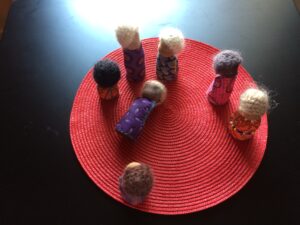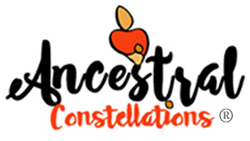Sunflowers and Light
When I was a young girl, I remember playing really freely in the back garden of our family home in south London. It was walled and flanked by large sunflowers. Although small it seemed perfectly formed to me, I loved the larder in the kitchen. It was detached so we had a large driveway that we used to play in, “these boots are made for walking in, that’s just what we’ll do, one of these days these boots are gonna walk all over you” the hit tune of the time, and my sister and I would put on our rain boots and play with the hose and water and pretend to walk over each other, it was idyllic, as I remember it. At seven we moved to Essex and it felt the complete opposite of that sunny light space, it was cold and grey and I felt bereft and instead of colour, everything became black and white, mainly white with my black face amongst it all. For the next 10 years, I lived with my family in what I now imagine was their way of trying to give us something better, more opportunity. In part maybe it worked, I learned to get on with many different people and I understood more about English culture, of the aspiring classes that is than I might have done had I remained in a Caribbean community in London. But I was lonely and deeply unhappy and the impact of those 10 years has followed me throughout my life.
A Vision of Generations
I have been led to Family Constellations with a vision of generations of people, of different colours each gently supporting each other in a community of humanity. Is it an idealised view of the world maybe, but it also represents for me the other side of the black and white and grey, a world that many people choose or are forced to live in? Colour is in everyone’s life, in the shades of our skin, in the tones of our complexion, in the clothes that we choose to wear, a world without colour would be a very dull and boring affair. Even when we may not consciously think of colour it is all around us. Last year I was burgled and the claims inspector who came to my house took one look at the basket of diaspora dollies and reached out to pick up a couple of the dollies. Our approach to Family Constellations pays particular to multi-culture-colour relationships. I have been interested in bringing a more ‘African-centred’ perspective to my work as a constellations facilitator because, for the majority of people that I work with, these dynamics are either in the background or fully up-front in the issues that they want to address in their families and communities.
Diaspora Dollies
Diaspora dollies’ can be a valuable way to examine differences within a system. One client became very excited when she saw them,
“Oh” she said, picking up a couple of dark skin figures, “so these” (holding two brown skin dollies) “can represent my husband and mother-in-law and these, (holding two white skin dollies) my sister and mother”.
This was clearly a powerful way for her to explore colour dynamics within her family that were not discussed within the wider system And for others, these dynamics are not so important or are not the presenting issue they just want to explore and understand their own cultural roots and identity in a changing world. This is a ‘colour-conscious’ perspective, that can also be used to explore families and communities where everyone may look very similar and have very many differences that are ‘unseen’.

Creating a Safe Space
Creating a space to talk about specific issues does not mean that the space will always be used to do that, it just acts as a form of ‘permission giving,’ that allows clients to speak about these issues more freely if they choose. This is not just for people of African heritage, many people who come to our workshops are in mixed-race relationships, bi-cultural/racial children have created their own multi-culture-colour families or have adopted children with a different ethnic, colour or race heritage. There are various ways that these topics can be explored, the first of which is just giving space for the details to emerge as part of the facilitator-client relationship when setting up a constellation. Other ways to do this is through one-to-one sessions using our ‘diaspora dollies’ that act as representatives for people and ‘storying’. You can see relationships between people depending on where they are placed and as you move around you can see or sense your connection to them from different positions. In this way, you can also explore your identity, family of origin and the wider community. ‘
Past-Present-Future
Looking to the past, present and future, this approach can help you if you are looking to ‘find your place in a family or community system’. It also supports you if you are exploring issues or ‘identity and belonging’ or want to resolve personal, family or community dilemmas For me family constellations are about how to include that which has been excluded, it is about reconciliation of unintegrated parts of ourselves and it speaks to the healing forces that are so needed in the world at the moment. It is hard to name or talk about taboo subjects, because it speaks to the painful memories and the shame that we still carry, about the legacy of the slave trade, the influence of colonialism on our thinking and behaviours or the impact of shadism within communities of people of colour. When I first started talking about colour in constellations I felt that I had to explain what it was and what I meant. It also felt that in some ways I was moving away from the core beliefs of family constellations which is to give space to that which is to be reconciled or worked with in the client or those coming to the work. It shouldn’t be about me and my angst and my almost 50 years of trying to reconcile who I am as a black woman in a white world and someone who in the past has been deeply wounded and traumatised by their transgenerational history.
Inclusion Anyway
And then I realised that without this inclusion I would be excluding something from the work which meant that I wouldn’t be authentic in the work.So I decided to make peace with myself and instead of attempting to reconcile the un-integrated aspects of myself (which I have been trying to do for decades), I would instead walk this constellations journey with both family and colour side by side. My offerings are an invitation for you to start your work with family, relationships, sibling rivalry, excluded members and the influences of colonialism and shades. I invite you to explore your fractured identity or to question your notions of belonging. In another blog, I love constellations because it is a modern ritual, a ritual fashioned for a Western audience and it doesn’t take away from the therapeutic value that has been distilled by Beft Hellinger’s formation. Now the less to an African heritage eye it is a modern ritual and so in my work, that is what I see, that is what I hear and that is what I honour

0 Comments